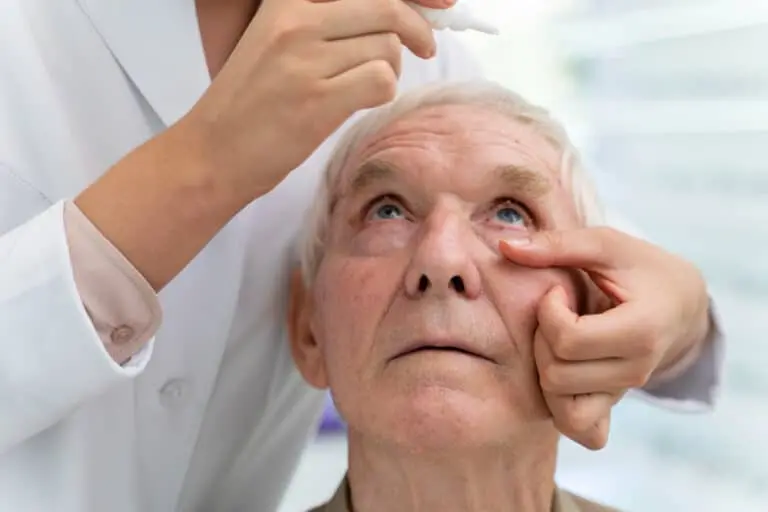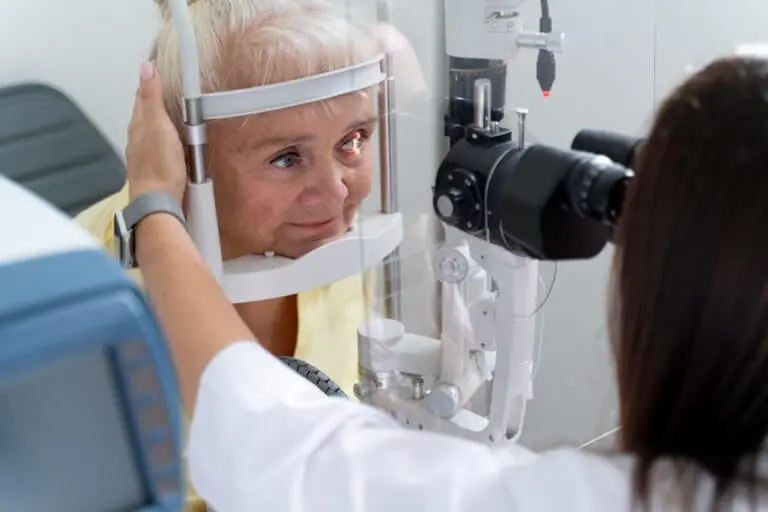Cataract Eye Surgery in Devon
Cataract eye surgery stands as a widely practised surgical intervention, presenting a reliable remedy for individuals grappling with cataracts. This ailment manifests through the hazy appearance of the eye’s inherent lens, leading to compromised eyesight. The prospect of undergoing private cataract eye surgery in Devon presents many advantages that entice a significant influx of patients.

What are Cataracts?
Cataracts manifest as an ocular condition wherein the lens within your eye undergoes a cloudy transformation, negatively impacting your vision. The lens, a diminutive transparent disc nestled within your eye, typically maintains clarity. However, in the presence of cataracts, your visual perception becomes obscured. With the passage of time, these opaque formations gradually expand, ultimately leading to a complete loss of sight.
Generally, cataracts materialise in both eyes, yet it is plausible to develop them in only one eye or experience a greater prevalence in one eye over the other. The origins of cataracts lie in the disintegration of lens tissues, culminating in the formation of protein clusters that obscure discrete areas of the lens.
What are the symptoms of cataracts?
As individuals age, cataracts often become a prevalent issue, causing a gradual decline in visual acuity. This condition’s onset and advancement introduce a variety of symptoms that individuals may experience, including:
- Reduced clarity in perceiving objects.
- Dullness in the perception of colours.
- Difficulties while driving, particularly at night.
- Heightened sensitivity to bright lights and glare.
- The progressive deterioration of visual quality.
- Vision becoming hazy or cloudy.
- diminished ability to perceive colours vividly.
- Frequent changes are required in spectacle prescriptions.
Fortunately, significant progress has been made in the field of cataract eye surgery, making it a universally accepted procedure globally. At the esteemed Medical Eye Clinic in Exeter, Devon, an exceptional team of skilled surgeons with extensive expertise in this domain is available. Consequently, patients can confidently expect exceptionally positive outcomes from their cataract surgeries.

Who is at risk of cataracts?
Although cataracts can affect individuals of any age, they predominantly manifest as an eye condition associated with ageing, gradually deteriorating, and potentially having hereditary traits.
The exact reasons behind the heightened susceptibility to cataracts as we grow older remain uncertain. Some theories posit that the lens within the eye thickens, loses its transparency, and becomes less pliable over time. Nonetheless, certain factors have been identified that potentially elevate the likelihood of developing cataracts, encompassing:
- diabetes
- a family history of cataracts
- smoking
- eye injury or trauma (such as eye surgery)
- medications (such as long-term use of steroids)
- regularly drinking excessive amounts of alcohol.
- eye conditions (such as glaucoma).
How do we evaluate categories?
Thorough eye evaluation for cataract eye surgery in Devon
To ensure an accurate diagnosis of cataracts, a thorough evaluation of the eyes is crucial. Typically, this evaluation is carried out by either a consultant ophthalmic surgeon or an optometrist, who possess extensive expertise in this field.
These skilled professionals employ a range of examinations to assess the presence and extent of cataracts, as well as to evaluate if cataract eye surgery is a viable option for treatment.
Assessment of Visual Acuity
The evaluation of your visual acuity requires the use of a traditional eye chart, which functions as a means to assess your ability to discern objects at different distances.
In the event that your visual clarity falls short of a particular standard, it may indicate the potential existence of cataracts.
Examination with a Slit-Lamp
By using a specialised optical tool called a slit lamp, this evaluation effectively illuminates and magnifies the detailed internal structures of the eye.
By harnessing the power of strong light, the examiner is able to directly observe the lens, detecting even the most subtle signs of opacities, which often appear as cataracts.
Dilated Eye Examination
During a dilated eye examination, eye drops are given to expand and improve the size of your pupils, allowing the examiner to conduct a more accurate assessment of the lens and detect any indications of cataracts. Following a diagnosis of cataracts, healthcare professionals will have a thorough discussion with the patient concerning the most suitable treatment choices.
The degree of cataracts and their impact on the person’s quality of life will be carefully considered. In many cases, this will result in a recommendation for cataract surgery, and an appropriate referral will be arranged.

How can we treat cataracts?
Medical science has yet to discover any treatments that can delay or prevent the development of cataracts. However, there is a viable solution available: the removal of the hazy, natural lens and its replacement with an artificial intraocular lens.
By undergoing this procedure, not only can your vision be greatly improved, but your overall quality of life as well. Cataract eye surgery is widely recognised as one of the most commonly performed, safest, and most effective surgical interventions worldwide. During the surgery, the cloudy natural lens is skilfully extracted, and a tiny incision is made at the periphery of the eye to accommodate the placement of the artificial intraocular lens.
Remarkably, this incision typically seals itself, eliminating the need for any sutures and facilitating a speedy and hassle-free recovery. The entire procedure usually only takes between 15 and 30 minutes, and thanks to the administration of anaesthesia, patients experience absolutely no pain throughout the process.
Benefits of private cataract eye surgery in Devon
Enhanced Treatment Availability
Private cataract surgeries have a significant edge over the National Health Service’s (NHS) waiting list as they ensure prompt access to treatment. NHS patients often endure lengthy waiting times of six months or more before they can undergo surgery.
In contrast, our private cataract eye surgery in Devon ensures that patients receive timely treatment, typically within a few weeks from their initial consultation.
The Significance of Prompt Treatment Access
The prompt availability of cataract eye surgery holds immense significance due to numerous compelling reasons. Foremost, timely access to treatment aids in minimising the waiting period, during which a patient’s eyesight may deteriorate further, potentially affecting their overall quality of life.
Mundane tasks like reading, driving, and even recognising familiar faces can become increasingly challenging, leading to frustration, reliance on others, and a diminished sense of personal autonomy. Furthermore, unattended cataracts can sometimes give rise to other eye-related complications, such as persistent inflammation, glaucoma, or, in extreme cases, complete blindness.
Consequently, the sooner patients can avail of treatment, the reduced likelihood of complications, and the quicker restoration of their normal visual abilities. Moreover, expedited access to treatment also eases the anxiety and stress associated with waiting for a medical procedure, ultimately contributing to an overall improved state of mental well-being.
To embark on your journey towards private cataract eye surgery in Devon, we highly encourage you to reach out to our dedicated team today. You have the option to either call our team at 01392 829436 or use our convenient online contact form.
